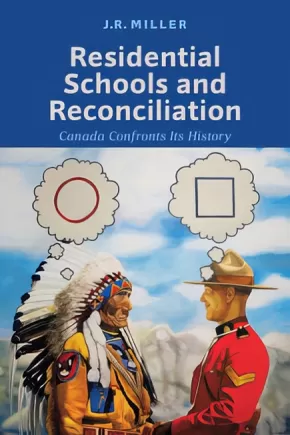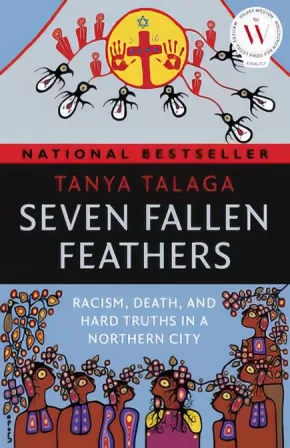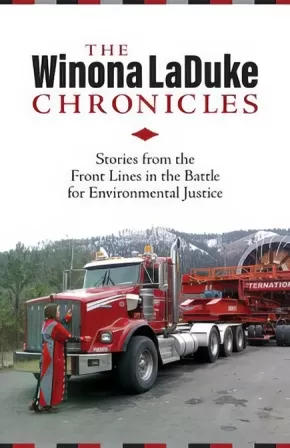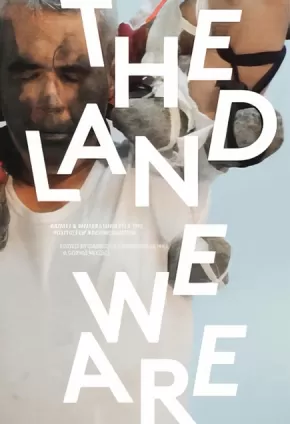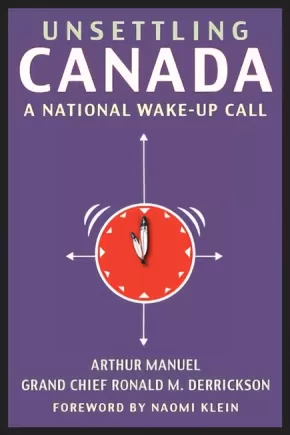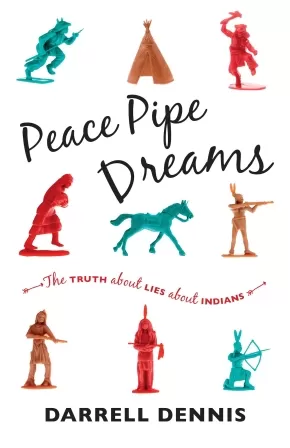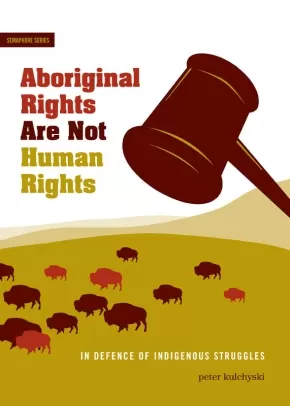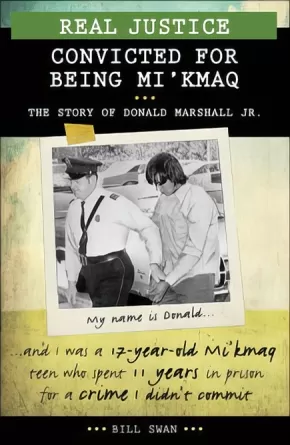
Indigenous Politics, Law, and Justice
31
-
42
of
42 Results;
Sort By
Go To
of 3
Residential Schools and Reconciliation: Canada Confronts Its History
$45.95
Format:
Hardcover
Text Content Territories:
Indigenous Canadian;
Grade Levels: University/College;
ISBN / Barcode: 9781487502188
Synopsis:
Synopsis:
Since the 1980s successive Canadian institutions, including the federal government and Christian churches, have attempted to grapple with the malignant legacy of residential schooling, including official apologies, the Royal Commission on Aboriginal Peoples, the Indian Residential Schools Settlement Agreement, and the Truth and Reconciliation Commission (TRC). In Residential Schools and Reconciliation, award winning author J. R. Miller tackles and explains these institutional responses to Canada’s residential school legacy. Analysing archival material and interviews with former students, politicians, bureaucrats, church officials, and the Chief Commissioner of the TRC, Miller reveals a major obstacle to achieving reconciliation – the inability of Canadians at large to overcome their flawed, overly positive understanding of their country’s history. This unique, timely, and provocative work asks Canadians to accept that the root of the problem was Canadians like them in the past who acquiesced to aggressively assimilative policies.
Excerpt
From the Conclusion:
"Canadians cannot approach reconciliation thinking that fine words and amicable gestures are enough. First Nations want their claims settled and many are interested in concluding treaties. Until Canada moves effectively to meet their desires, the country lacks the measures of social justice for Native peoples that are precondition for progress towards reconciliation...The cause of reconciliation is not hopeless; there are encouraging signs of individual and local initiatives designed to bring about reconciliation on a small scale...If enough of these small actions develop and spread, they could create the popular support for large-scale state measures that will redress the hard, material wrongs that stand in the way of reconciliation. Should that blissful day ever come, Canada will be able to advance meaningfully towards the goal of reconciliation."
Reviews
Professor Jim Miller of the University of Saskatchewan pulls back the curtain on the historical blame game. Residential Schools and Reconciliation documents Ottawa’s handling of Aboriginal issues. This is not ancient history. It just happened."
— Holly Doan, Blacklock’s Reporter. Saturday, November 18, 2017
As colonial nations around the world seek pathways to post-conflict reconciliation, J.R. Miller’s timely work is an important reminder of both the potential obstacles and the healing possibilities of such initiatives.
— Leigh Anne Williams, Publishers Weekly, February 12, 2018
Additional Information
368 pages | 6.00" x 9.00"
Seven Fallen Feathers: Racism, Death, and Hard Truths in a Northern City
$22.99
Format:
Paperback
Text Content Territories:
Indigenous Canadian; First Nations; Anishinaabeg; Ojibway;
ISBN / Barcode: 9781487002268
Synopsis:
Synopsis:
In 1966, twelve-year-old Chanie Wenjack froze to death on the railway tracks after running away from residential school. An inquest was called and four recommendations were made to prevent another tragedy. None of those recommendations were applied.
More than a quarter of a century later, from 2000 to 2011, seven Indigenous high school students died in Thunder Bay, Ontario. The seven were hundreds of miles away from their families, forced to leave home and live in a foreign and unwelcoming city. Five were found dead in the rivers surrounding Lake Superior, below a sacred Indigenous site. Jordan Wabasse, a gentle boy and star hockey player, disappeared into the minus twenty degrees Celsius night. The body of celebrated artist Norval Morrisseau’s grandson, Kyle, was pulled from a river, as was Curran Strang’s. Robyn Harper died in her boarding-house hallway and Paul Panacheese inexplicably collapsed on his kitchen floor. Reggie Bushie’s death finally prompted an inquest, seven years after the discovery of Jethro Anderson, the first boy whose body was found in the water.
Using a sweeping narrative focusing on the lives of the students, award-winning investigative journalist Tanya Talaga delves into the history of this small northern city that has come to manifest Canada’s long struggle with human rights violations against Indigenous communities.
A portion of each sale of Seven Fallen Feathers will go to the Dennis Franklin Cromarty Memorial Fund, set up in 1994 to financially assist Nishnawbe Aski Nation students’ studies in Thunder Bay and at post-secondary institutions.
Awards
- 2018-2019 First Nation Communities Read
- 2018 RBC Taylor Prize
Reviews
“Talaga has written Canada’s J’Accuse, an open letter to the rest of us about the many ways we contribute — through act or inaction — to suicides and damaged existences in Canada’s Indigenous communities. Tanya Talaga’s account of teen lives and deaths in and near Thunder Bay is detailed, balanced and heart-rending. Talaga describes gaps in the system large enough for beloved children and adults to fall through, endemic indifference, casual racism and a persistent lack of resources. It is impossible to read this book and come away unchanged.” — RBC Taylor Prize Jury Citation
“In Seven Fallen Feathers, Tanya Talaga delves into the lives of seven Indigenous students who died while attending high school in Thunder Bay over the first eleven years of this century. With a narrative voice encompassing lyrical creation myth, razor-sharp reporting, and a searing critique of Canada’s ongoing colonial legacy, Talaga binds these tragedies — and the ambivalent response from police and government — into a compelling tapestry. This vivid, wrenching book shatters the air of abstraction that so often permeates news of the injustices Indigenous communities face every day. It is impossible to read Seven Fallen Feathers and not care about the lives lost, the families thrust into purgatory, while the rest of society looks away.” — Hilary Weston Writers’ Trust Prize for Nonfiction Jury Citation
“[A]n urgent and unshakable portrait of the horrors faced by Indigenous teens going to school in Thunder Bay, Ontario, far from their homes and families. . . . Talaga’s incisive research and breathtaking storytelling could bring this community one step closer to the healing it deserves.” — Booklist, STARRED REVIEW
“Seven Fallen Feathers may prove to be the most important book published in Canada in 2017. Tanya Talaga offers well-researched, difficult truths that expose the systemic racism, poverty, and powerlessness that contribute to the ongoing issues facing Indigenous youth, their families, and their communities. It is a call to action that deeply honours the lives of the seven young people; our entire nation should feel their loss profoundly.” — Patti LaBoucane-Benson, author of The Outside Circle
“[W]here Seven Fallen Feathers truly shines is in Talaga’s intimate retellings of what families experience when a loved one goes missing, from filing a missing-persons report with police, to the long and brutal investigation process, to the final visit in the coroner’s office. It’s a heartbreaking portrait of an indifferent and often callous system . . . Seven Fallen Feathers is a must-read for all Canadians. It shows us where we came from, where we’re at, and what we need to do to make the country a better place for us all.” — The Walrus
Educator Information
The Canadian Indigenous Books for Schools list recommends this resource for Grade 12 English Language Arts and Social Studies.
Curriculum Connections: Indigenous Studies, History, Health
Additional Information
376 pages | 5.50" x 8.50" | 8-page colour insert and maps
Speaking Our Truth: A Journey of Reconciliation
$29.95
Format:
Hardcover
Text Content Territories:
Indigenous Canadian;
ISBN / Barcode: 9781459815834
Synopsis:
Synopsis:
Canada's relationship with its Indigenous people has suffered as a result of both the residential school system and the lack of understanding of the historical and current impact of those schools. Healing and repairing that relationship requires education, awareness and increased understanding of the legacy and the impacts still being felt by Survivors and their families. Guided by acclaimed Indigenous author Monique Gray Smith, readers will learn about the lives of Survivors and listen to allies who are putting the findings of the Truth and Reconciliation Commission into action.
Educator Information
Recommended for grades 4 to 8.
A teacher guide for this resource is also available: Speaking Our Truth Teacher Guide
Additional Information
160 pages | 7.50" x 9.00"
The Winona LaDuke Chronicles: Stories from the Front Lines in the Battle for Environmental Justice
$25.00
Format:
Paperback
Text Content Territories:
Indigenous American; Indigenous Canadian;
ISBN / Barcode: 9781552669594
Synopsis:
Synopsis:
Chronicles is a major work, a collection of current, pressing and inspirational stories of Indigenous communities from the Canadian subarctic to the heart of Dine Bii Kaya, Navajo Nation. Chronicles is a book literally risen from the ashes—beginning in 2008 after her home burned to the ground—and collectively is an accounting of Winona’s personal path of recovery, finding strength and resilience in the writing itself as well as in her work. Long awaited, Chronicles is a labour of love, a tribute to those who have passed on and those yet to arrive.
Reviews
“Winona LaDuke’s latest book reads like a prayer. These are holy words— inspirational stories taken straight from the heart of indigenous communities throughout the world…(Chronicles) is lyrical, instructional, and infused with wry humor when the weight of the message becomes unbearable…LaDuke provides a roadmap through tribal nations’ belief systems; offering a spiritual compass and invaluable insight into the relationship of prophesy to the realities of climate change, economic collapse, food scarcity and basic human rights.” — Huffington Post
Educator Information
Recommended for students in grades 9 - 12, as well as those at a college/university level, for courses in science, environmental science, and social justice.
Additional Information
310 pages | 6.00" x 9.00"
Indigenous Writes: A Guide to First Nations, Métis & Inuit Issues in Canada
$32.00
Format:
Paperback
Text Content Territories:
Indigenous Canadian; First Nations; Inuit; Métis;
ISBN / Barcode: 9781553796800
Synopsis:
Synopsis:
Delgamuukw. Sixties Scoop. Bill C-31. Blood quantum. Appropriation. Two-Spirit. Tsilhqot’in. Status. TRC. RCAP. FNPOA. Pass and permit. Numbered Treaties. Terra nullius. The Great Peace…
Are you familiar with the terms listed above? In Indigenous Writes, Chelsea Vowel, legal scholar, teacher, and intellectual, opens an important dialogue about these (and more) concepts and the wider social beliefs associated with the relationship between Indigenous peoples and Canada. In 31 essays, Chelsea explores the Indigenous experience from the time of contact to the present, through five categories – Terminology of Relationships; Culture and Identity; Myth-Busting; State Violence; and Land, Learning, Law, and Treaties. She answers the questions that many people have on these topics to spark further conversations at home, in the classroom, and in the larger community.
Reviews
"Chelsea attacks issues head on, with humour and wit, sarcasm and cynicism and clear, concise and well-organized information. She makes further research easy, as every chapter includes copious endnotes with links to her curated resources. She explains the terminology of identity — status, non-status, registered, membership, Métis, Inuit, cultural appropriation and two-spiritedness." —Nancy Adams-Kramp
"While subtitled A Guide to First Nations, Métis and Inuit Issues in Canada, it would be a mistake to see Indigenous Writes as a book primarily about Indigenous people. Instead, it is much more about all of us — our relationship as non-Indigenous and Indigenous Canadians, and how it has been shaped (and misshaped) by the historic and contemporary governance of these issues.
For any Canadian who wishes to have an informed opinion about the country that we share — or, more to the point, publicly share that opinion — Indigenous Writes is essential reading."—Michael Dudley
Educator & Series Information
This book is part of the Debwe Series.
For all teachers.
Approved for Manitoba classrooms.
ERAC approved.
Additional Information
291 pages | 7.00" x 9.00"
#IdleNoMore: And the Remaking of Canada
$27.95
Format:
Paperback
Text Content Territories:
Indigenous Canadian;
Grade Levels: 12; University/College;
ISBN / Barcode: 9780889773424
Synopsis:
Synopsis:
Idle No More bewildered many Canadians. Launched by four women in Saskatchewan in reaction to a federal omnibus budget bill, the protest became the most powerful demonstration of Aboriginal identity in Canadian history. Thousands of aboriginal people and their supporters took to the streets, shopping malls, and other venues, drumming, dancing, and singing in a collective voice.
It was a protest against generations of injustice, a rallying cry for cultural survival, and a reassertion of Aboriginal identity.
Idle No More lasted for almost a year, and then the rallies dissipated. Many observers described it as a spent force. It was anything but. Idle No More was the most profound declaration of Indigenous identity and confidence in Canadian history, sparked by Aboriginal women and their supporters, sustained by young Indigenous peoples, filled with pride and determination. When the drums slowed, a new and different Canada was left in its wake. Partially stunned by the peaceful celebrations, but perplexed by a movement that seemed to have no centre and no leaders, most Canadians missed the point.
Through Idle No More, Aboriginal people have declared that they are a vital and necessary part of Canada's future. The spirit of the drumming, singing and dancing lives on in empowered and confident young Aboriginal people who will shape the future of this country for decades to come.
The Land We Are: Artists and Writers Unsettle the Politics of Reconciliation
$24.95
Editors:
Format:
Paperback
Text Content Territories:
Indigenous Canadian;
ISBN / Barcode: 9781894037631
Synopsis:
Synopsis:
The Land We Are is a stunning collection of writing and art that interrogates the current era of reconciliation in Canada. Using visual, poetic, and theoretical language, the contributors approach reconciliation as a problematic narrative about Indigenous-settler relations, but also as a site where conversations about a just future must occur. The result of a four-year collaboration between artists and scholars engaged in resurgence and decolonization, The Land We Are is a moving dialogue that blurs the boundaries between activism, research, and the arts.
The contributors to this book include leading artists and scholars engaged in questions of resurgence, restitution, and decolonization.
Contributors: Jordan Abel, Leah Decter, Jonathan Dewar, David Garneau, Ayumi Goto, Allison Hargreaves, Gabrielle L'Hirondelle Hill, Jaimie Isaac, David Jefferess, Layli Long Soldier, The New BC Indian Art and Welfare Society Collective, Sophie McCall, Peter Morin, Skeena Reece, Dylan Robinson, Sandra Semchuk, Adrian Stimson, Clement Yeh, and Keren Zaiontz.
Reviews
"This beautifully produced, richly illustrated volume not only offers readers a visual journey into the featured artistic installations and performance pieces, but through its creative use of text and graphic design is itself an artistic statement on reconciliation." --Winnipeg Free Press
Educator Information
Recommended for students in grades 11 and 12, as well as at a college/university level.
Additional Information
240 pages | 6.50" x 9.50"
Unsettling Canada: A National Wake-Up Call
$29.95
Format:
Paperback
Text Content Territories:
Indigenous Canadian;
ISBN / Barcode: 9781771131766
Synopsis:
Synopsis:
Unsettling Canada, a Canadian bestseller, is built on a unique collaboration between two First Nations leaders, Arthur Manuel and Grand Chief Ron Derrickson.
Both men have served as chiefs of their bands in the B.C. interior and both have gone on to establish important national and international reputations. But the differences between them are in many ways even more interesting. Arthur Manuel is one of the most forceful advocates for Aboriginal title and rights in Canada and comes from the activist wing of the movement. Grand Chief Ron Derrickson is one of the most successful Indigenous businessmen in the country.
Together the Secwepemc activist intellectual and the Syilx (Okanagan) businessman bring a fresh perspective and new ideas to Canada’s most glaring piece of unfinished business: the place of Indigenous peoples within the country’s political and economic space. The story is told through Arthur’s voice but he traces both of their individual struggles against the colonialist and often racist structures that have been erected to keep Indigenous peoples in their place in Canada.
In the final chapters and in the Grand Chief’s afterword, they not only set out a plan for a new sustainable indigenous economy, but lay out a roadmap for getting there.
Reviews
“This is the back story of both grassroots and backroom struggles that created the context in which we find ourselves today, one in which a new generation of First Nations leaders is demanding sovereignty and self-determination, and more and more non-Indigenous Canadians finally understand that huge swaths of this country we call Canada is not ours - or our government's - to sell.” — Naomi Klein, from the Foreword
“Pragmatic and helpful, this is a timely book for our fraught and political moment” — Quill & Quire
"Unsettling Canada is a breathtakingly beautiful story of Indigenous resistance, strength, and movement building. Unsettling Canada echoes the power of George Manuel's The Fourth World, centering the heart of the narrative deep inside a kind of Indigenous intelligence rarely shared outside our communities. This is the critical conversation that Canada and Indigenous peoples must have because it is centred on land, and, therefore, it is one of the most important books on Indigenous politics I've ever read." — Leanne Betasamosake Simpson, author of Dancing on Our Turtle's Back
Educator Information
This resource would be useful for courses in history, social justice, political science, and social studies. Recommended for students in grades 10 to 12 or those at a college/university level.
CONTENTS
Foreword Naomi Klein
Chapter 1 The Lay of the Land
Chapter 2 Institutionalizing a People: Indian Hospital, School, Jail
Chapter 3 White Paper to Red Paper: Drawing the Battle Lines
Chapter 4 Occupy Indian Affairs: Native Youth in Action
Chapter 5 Aboriginal Title: No Surrender
Chapter 6 The Constitution Express: A Grassroots Movement
Chapter 7 Don’t Let Them Bully You: A Business Interlude
Chapter 8 A Chief’s Concerns: Finances, the People, and the Land
Chapter 9 Upping the Ante: RCAP and a Landmark Court Decision
Chapter 10 The Battle in the Forest: The Trade in Indian Trees
Chapter 11 Sun Peaks to Geneva: Playgrounds and Fortresses
Chapter 12 Taking It to the Bank: Accounting for Unpaid Debt
Chapter 13 The Fourth World: A Global Movement
Chapter 14 Line of Defence: Side by Side for Mother Earth
Chapter 15 No Half Measures: The Price of Uncertainty
Chapter 16 Days of Protest: Young Activists Come Together
Chapter 17 The End of Colonialism
Afterword Grand Chief Ronald M. Derrickson
Acknowledgements
Appendix United Nations Declaration on the Rights of Indigenous Peoples
Notes
Index
Additional Information
288 pages | 6.00" x 9.00"
Unsettling Canada: A National Wake-Up Call - Second Edition
$29.95
Format:
Paperback
Text Content Territories:
Indigenous Canadian;
ISBN / Barcode: 9781771135566
Synopsis:
Synopsis:
A Canadian bestseller and winner of the 2016 Canadian Historical Association Aboriginal History Book Prize, Unsettling Canada is a landmark text built on a unique collaboration between two First Nations leaders.
Arthur Manuel (1951-2017) was one of the most forceful advocates for Indigenous title and rights in Canada; Grand Chief Ron Derrickson, one of the most successful Indigenous businessmen in the country. Together, they bring a fresh perspective and bold new ideas to Canada's most glaring piece of unfinished business: the place of Indigenous peoples within the country's political and economic space.
This vital second edition features a foreword by award-winning activist Naomi Klein and an all-new chapter co-authored by law professor Nicole Schabus and Manuel's son, Ska7cis, honouring the multi-generational legacy of the Manuel family's work.
Reviews
“Pragmatic and helpful, this is a timely book for our fraught and political moment” — Quill & Quire
"Unsettling Canada is a breathtakingly beautiful story of Indigenous resistance, strength, and movement building. Unsettling Canada echoes the power of George Manuel's The Fourth World, centering the heart of the narrative deep inside a kind of Indigenous intelligence rarely shared outside our communities. This is the critical conversation that Canada and Indigenous peoples must have because it is centred on land, and, therefore, it is one of the most important books on Indigenous politics I've ever read." — Leanne Betasamosake Simpson, author of Dancing on Our Turtle's Back
Educator Information
This resource would be useful for courses in history, social justice, political science, and social studies. Recommended for students in grades 10 to 12 or those at a college/university level.
Additional Information
320 pages | 6.00" x 9.00"
Peace Pipe Dreams
$22.95
Format:
Paperback
Text Content Territories:
Indigenous Canadian; Métis; Inuit; First Nations;
ISBN / Barcode: 9781771000406
Synopsis:
Synopsis:
In 2015-2016, Peace Pipe Dreams was the award recipient for First Nation Communities Read.
Darrell Dennis is a stereotype-busting, politically incorrect Native American/Aboriginal/Shuswap (Only he's allowed to call himself an "Indian." Maybe. Under some circumstances). With a large dose of humour and irreverence, he untangles some of the truths and myths about First Nations: Why do people think Natives get free trucks, and why didn't he ever get one? Why does the length of your hair determine whether you’re good or bad? By what ratio does the amount of rain in a year depend on the amount of cactus liquor you consume?
In addition to answering these burning questions, Dennis tackles some tougher subjects. He looks at European-Native interactions in North America from the moment of first contact, discussing the fur trade, treaty-signing and the implementation of residential schools. Addressing misconceptions still widely believed today, Dennis explains why Native people aren't genetically any more predisposed to become alcoholics than Caucasians; that Native religion doesn't consist of worshipping rocks, disappearing into thin air, or conversing with animals; and that tax exemptions are so limited and confusing that many people don't even bother.
Employing pop culture examples, personal anecdote and a cutting wit, Darrell Dennis deftly weaves history with current events to entertain, inform and provide a convincing, readable overview of First Nations issues and why they matter today.
Additional Information
224 pages | 5.65" x 8.52"
Aboriginal Rights Are Not Human Rights: In Defense of Indigenous Struggles
$19.95
Format:
Paperback
Text Content Territories:
Indigenous Canadian;
ISBN / Barcode: 9781894037761
Synopsis:
Synopsis:
Aboriginal rights do not belong to the broader category of universal human rights because they are grounded in the particular practices of aboriginal people. So argues Peter Kulchyski in this provocative book from the front lines of indigenous people’s struggles to defend their culture from the ongoing conquest of their traditional lands. Kulchyski shows that some differences are more different than others, and he draws a border between bush culture and mall culture, between indigenous people’s mode of production and the totalizing push of state-led capitalism.
Aboriginal Rights Are Not Human Rights provides much needed conceptual and historical analysis of aboriginal and treaty rights in Canada, and offers concrete suggestions to transform the current policy paradigm into one that supports and invigorates indigenous cultures in a contemporary context.
Real Justice: Convicted for Being Mi'kmaq: The Story of Donald Marshall Jr.
$12.95
Format:
Paperback
Text Content Territories:
Indigenous Canadian; First Nations; Mi'kmaq;
ISBN / Barcode: 9781459404397
Synopsis:
Synopsis:
When a black teen was murdered in a Sydney, Cape Breton park late one night, his young companion, Donald Marshall Jr., became a prime suspect. Sydney police coached two teens to testify against Donald which helped convict him of a murder he did not commit. He spent 11 years in prison until he finally got a lucky break. Not only was he eventually acquitted of the crime, but a royal commission inquiry into his wrongful conviction found that a non-aboriginal youth would not have been convicted in the first place. Donald became a First Nations activist and later won a landmark court case in favour of native fishing rights. He was often referred to as the "reluctant hero" of the Mi'kmaq community.
Reviews
"Bill Swan presents a straightforward, compelling narrative, easily followed, that will astound today's teenagers." — Joan Marshall, Resource Links
"the important subject matter, meticulous research, and ultimately balanced portrait of the flawed man Marshall was makes this an engrossing and enlightening read for curious teens."— CM: Canadian Review of Materials
"Much of this disturbing but well-researched book is impressively drawn directly from court documents and is part of the valuable Real Justice series, which features wrongfully accused Canadian youth and their fight for freedom."— Booklist Online
Educator Information
Interest age: From 13 To 17
Fry Reading Level [grade]: 5.0
Lexile Reading Level: HL770L
Additional Information
184 pages | 5.50" x 8.50"
Sort By
Go To
of 3

